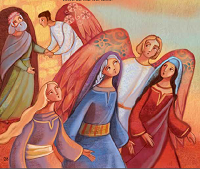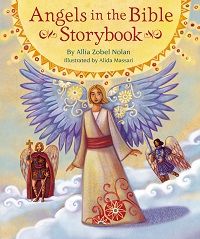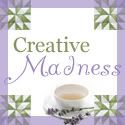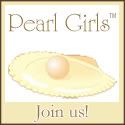
Introduction
Nonna Bannister appeared to be a typical American housewife. She married Henry, the love of her life, in 1951 and together they raised three children in Memphis, Tennessee. But Nonna was far from average. For half a century, she kept her story secret while living a normal life. She locked all of her photos, documents, diaries, and dark memories from World War II in a trunk in her attic.
Tyndale House Publishers announces the publication of The Secret Holocaust Diaries: The Untold Story of Nonna Bannister written by Nonna Bannister with Denise George and Carolyn Tomlin (April 2009, Tyndale House), the haunting eyewitness account of Nonna Lisowskaja Bannister, a remarkable Russian girl who saw and survived unspeakable evils during World War II.
Questions & Answers
1. The Secret Holocaust Diaries is written by Nonna although she passed away in 2004. Did she write the book before she died?
Yes, she slipped up into the attic each night, translated her diaries (from several different languages), and recorded them in English onto yellow legal pads. Much later, after she told her husband, Henry, about her incredible past, she showed him the stacks of yellow legal pads on which she had translated her diaries and recorded her thoughts about her past, and he typed them up into a manuscript.
2. Would Nonna have liked to see her book published before she died?
Nonna translated her diary into English and her husband, Henry, typed the manuscript. However, she requested the diary not be published until at least 2 or 3 years after she died. Henry honored this request. (She died in 2004.) The story was very painful and reminded her of the suffering her family endured. When she came to America in 1950 she was overwhelmed by her new life. She was determined to make a new life for herself and to give her husband and children a happy home.
3. Nonna came from a privileged family. Are there any interesting stories of people her ancestors knew?
Nonna's family "ran with" the upper crust in the Ukraine and Russia. Her mother and father were educated in Russia's great cultural city, St. Petersburg. Nonna's grandmother and grandfather knew the last Tsar, Nicholas II, and Nonna kept a postcard sent by him (shortly before his death) to her grandfather, Jakob, for his birthday (dated 1913?). Jakob was killed during the Revolution while trying to help Russian families escape.
Nonna writes in her diary of living on the ”Chekov Lane” in Taganrog, the street where Russian writer Anton Chekov (1860–1904) had once lived.
The family also visited often the boy Aleksandr Solzhenitsyn (nicknamed "Sasha") and his mother, Taissia. She and Nonna’s mother, Anna, were good friends. They enjoyed giving concerts and playing the violin and piano. Nonna writes of eating ice cream with her mother and Taissia, and spending the night in the Solzhenitsyn home during a thunderstorm. Alexander was older that Nonna, studying at the university.
4. Many people assume most of the people killed by the Nazis were Jewish. Was Nonna’s family Jewish?
Although it is estimated that approximately 6 million Jews were killed by the Nazis, other nationalities experienced suffering and death, also. Nonna's family was Russian and owned seven grain mills and homes in southern Russia and the Ukraine. Her father, Yevgeny, and his family were from Warsaw, Poland, which included a large population of Jews. Due to border restrictions, Nonna never met her father's family. Yevgeny never told Nonna and her brother, Anatoly, if his family was Jewish. If the children didn't know, they could not let it slip. The admission of being Jewish could have meant deportation or certain death. There is speculation, but no one is certain.
5. Nonna saved many documents from her time at Nazi camps; what are these artifacts?
In a small ticking pillow she kept tied around her waist, she kept many one inch square photos of her family and friends in the Ukraine. She also kept her small childhood diary. On tiny slips of paper, she wrote her experiences (in diary form) and also kept these in the little pillow.
Later she kept all these in a small trunk, which she painted bright green.
6. When Nonna finally revealed her secret, was her family shocked?
Henry knew there was something about her past that she didn’t want to talk about. Being a patient man, he never pressed her to speak about this secret. As they grew older, he asked her to write down some things about her family—so their children would know their heritage. After
Happy Reading!
Friday, April 24, 2009
On Tour with The Secret Holocaust Diaries by Nonna Bannister with Denise George and Carolyn Tomlin
Authored by
Deena Peterson
at
10:48 PM
![]()
Subscribe to:
Post Comments (Atom)
The Good Book NetRing | |







.jpg)





 Stumble It!
Stumble It!











No comments:
Post a Comment